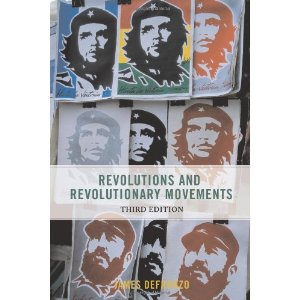
1. Needs to add understanding and summary of “secret war” and covert action dimensions underlying each revolution and its counter-revolution. Although there are some references, the reality about the CIA and others that comes out in books such as Legacy of Ashes: The History of the CIA or None So Blind: A Personal Account of the Intelligence Failure in Vietnam is simply not there. In this vein, the author focuses too much on world “permissiveness” for revolution as a factor, and not enough on the grave sorrows inflicted on humanity by US sponsorship of dictatorships (see Ambassador Mark Palmer's utterly sensational Breaking the Real Axis of Evil: How to Oust the World's Last Dictators by 2025. While the author does address CIA's role in subverting both Guatemala and Iran (and in Guatemala, of Che Guevara's being there to witness the illegal over-throw), generally this book lacks a system of systems approach to the raw disconnect between government and people across political-legal, socio-economic, ideo-cultural, techno-demographic, and natural-geographic factors.
2. Needs to add understanding and summary of the role of multinational corporations in both sponsoring and suppressing revolutions. From Global Reach: The Power of the Multinational Corporations to War is a Racket: The Antiwar Classic by America's Most Decorated Soldier to The Global Class War: How America's Bipartisan Elite Lost Our Future – and What It Will Take to Win It Back, the role of elite corruption sponsored by the USA or USSR or China or Iran is simply not adequately integrated.
3. Needs to add understanding and summary of the role of criminal networks as substantive players in any and all revolutionary movements, not just whatever poster child the US Government wants to emphasize that day. Criminals, terrorists, revolutionaries, and white collar criminals all share the same smuggling and money-laundering spectrum of networks. See Illicit: How Smugglers, Traffickers, and Copycats are Hijacking the Global Economy.
Continue reading “Review: Revolutions and Revolutionary Movements”

